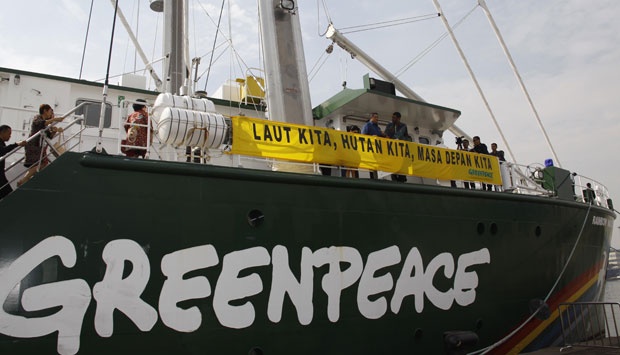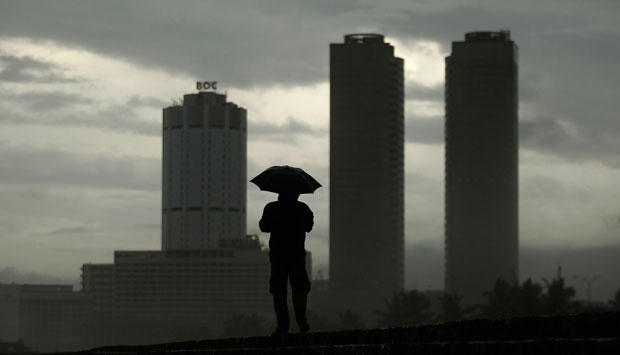
TEMPO.CO, Jakarta-A new plan that would open up much of Aceh’s forests to commercial exploitation has been clouded by misinformation.Officials place the blame with irresponsible NGOs, said to have spread false figures in the media.
However, civil society elements tell a different story. They claim it is the authorities who have been misleading the public, and that Aceh officials have designed the plan in secret, without a proper public consultation.
Moreover, environmental experts, activists and academics say that despite their best efforts, they have been unable to obtain basic data and documents associated with the plan. They tell of state agencies sending them in circles, withholding crucial information about what is in store for the province.
Their list of gripes also includes officials’ blatant disregard for procedure as they push the plan through Jakarta. Activists have assailed the legality of the plan as it awaits the signature of Forestry Minister Zulkifli Hasan, who announced in March that it was “almost final.”
Officials have promoted the plan as a vehicle to bring development to the people, but its opponents say it will actually undermine the livelihoods of the majority of the Acehnese.
Graham Usher, a landscape protection specialist with the Sumatra Orangutan Conservation Program, expounded on that point in a March 11 webinar, which was based on information obtained largely through unofficial means. In an interview with Tempo, he called the plan a “recipe for disaster.”
“If you really understand the geophysical reality of Aceh, why would you make the spatial plan they have?” he said. “It just doesn't make environmental sense."
Residents of Pidie, the rice bowl of Aceh, would suffer disruption to crucial water supplies, Usher said in the webinar. In Tamiang, where people still live in camps as a result of the massive flooding of 2006, reactivating logging concessions would exacerbate the risk of further disasters. The list goes on.
"We would love the opportunity to make a presentation to them about this,” he told Tempo.
"Where is the debate? Where is the rigorous peer review of what they're doing? That's all we're asking for."
The plan, known as Rencana Tata Ruang Wilayah (RTRW), has been in the works for years. In 2009, Aceh governor Irwandi Yusuf’s administration submitted to Jakarta a plan that would have increased Aceh’s protected forest area. The Public Works Ministry gave it the green light, and it went to the Forestry Ministry for approval.
In April 2012, however, Irwandi lost the race for governor to Zaini Abdullah. Soon rumors of a new draft began to circulate. The bombshell came in January, when Teuku Anwar, chairman of the Aceh parliament's spatial planning committee, told the Sydney Morning Herald that the new government intended to “reduce Aceh’s total forest cover from about 68 percent of the province's land mass to 45 percent.”
After that, news reports began naming 1.2 million hectares as the amount to be cleared. The Jakarta Post reported that the plan would “convert around 1.2 million hectares of forests into a limited forest production zone by converting it into plantation and mining areas and other purposes.”
That was wrong, said Irfan, a special adviser to Zaini. He attributed the confusion to a “black campaign” led by NGOs with an agenda.
Irfan said the plan would merely reclassify a net 89,000 ha as nonforest area. Some villages were in areas improperly marked as forest area, blocking them from state funds. In sum, the plan would only reduce the province’s “total forest area” from 61.4 percent to 60.5 percent.
“I think [troublesome NGOs] don’t know exactly what is the plan,” he told Tempo.
Usher said Irfan was simply presenting the situation from a different angle. He was talking, Usher said, as if old forestry design plans in which there are logging concessions that have been inactive for more than a decade were still valid.
“According to his mindset, those logging concessions still exist and they’re not changing anything by including them in the new spatial plan,” Usher said.
“Under Irwandi’s plan, the idea was not to have any of these forests available for logging. That’s our point of reference. Because people who have been doing environmental sensitivity analysis in Aceh, such as myself, feel there’s no area that can be logged without serious damage.”
"Why designate an area for logging if you don’t intend to log it?” he added.
Yakob Ishademy, who headed Irwandi’s Aceh Green team tasked with developing a conservation-based policy framework, said there had been no public consultation since Zaini took office.
"The problem is, the process should be open,” Yakob told Tempo. “That is mandated by the national law on spatial planning. Consultation of stakeholders, consultation of the public, consultation of the community.”
Isma Efendi, a spokesman for the Coalition of People Concerned for Aceh’s Forests (KPHA), said that while Irwandi was far from perfect, at least his regime was more transparent.
“At that time, we felt okay about the plan,” he told Tempo. “At least in those days, there was involvement.” Now, he said, communities and NGOs had been excluded. “The government hasn’t done its job to make sure people know what they’re planning,” he said.
Others feel the same way. Asnawi Zainun, a spokesman for the mukim of Aceh Besar -- mukim are indigenous leaders legally entitled to involvement in spatial planning -- told a press conference on April 2 that they had been neglected and that they rejected the plan. NGOs from Aceh Tamiang have released a similar statement.
Irfan said the Aceh parliament already held a Rapat Dengar Pendapat Umum, or public hearing, in which NGOs were invited to weigh in, although he couldn’t remember when it was, just that it was “a long time ago.”
The government only invited some NGOs to meetings like that, Efendi said. The ones known to protest, such as Walhi, were generally not included. Yakob said the only public hearings he knew about had either been held during Irwandi’s regime -- before the new draft came into play -- or had been limited to certain groups.
Yakob added that while he was on Aceh Green they held many stakeholder consultations, spent countless hours discussing people’s complaints with them and published data sets.
Joshua Holst, who lived in Aceh recently as part of his doctorate research, said that while there was certainly participation, it wasn’t always substantive.
“Groups that will be problematic are left out. ... Participation certainly has an impact, but it can also be about getting people on board with a plan that has been set already,” he wrote in an email.
Holst said agencies from which he requested ostensibly public data on Aceh’s forest cover only passed him around and claimed they didn’t have it.
“Many of my friends in Aceh indicated that it would be impossible to get GIS data, and to their point I certainly didn't have any success,” he wrote.
A former official who has worked with KPHA said she knew several activists who had written to Aceh’s Regional Development Planning Board (Bappeda) for data related to the spatial plan, but had never received a response. Efendi too has had little luck. Oftentimes, he was offered only partial information or sent to another agency, he said.
“That should not happen,” Yakob said.
At the end of the day, the former official said, if you overlay everything -- the pulp and paper, palm oil, mining and logging concessions treated as valid under the plan, the controversial proposed road network legitimized by it, the forest area changes it proposes, as well as the possible revocation of two logging moratorium now in effect -- the RTRW paves the way, directly or indirectly, for nearly 2 million hectares of destruction.
“That’s why I say they are smart,” she said. “Because they don’t make it obvious.”
Philip Jacobson






















